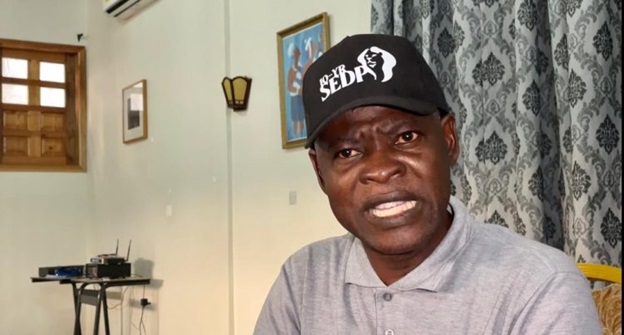Dr. Steve Manteaw
LACK OF transparency of beneficial ownership (BO) is said to be the safe haven for corruption, tax evasion and illicit financial flows in countries across the globe, including Ghana.
In 2016, a national risk assessment conducted by the government, in line with the criteria provided by the Financial Action Task Force, identified beneficial owner as one of the high-risk areas in which domestic and foreign corporate vehicles are being used for criminal purposes.
The assessment found out that identifying the true beneficial owner(s) or individual(s) exercising control represented a significant challenge for prosecutors, law enforcement agencies, and intelligence practitioners, as criminals employ a range of techniques and mechanisms to obscure their ownership and control of illicitly obtained assets.
It was suspected that these criminal elements design schemes to obscure beneficial ownership by employing what is termed as a “hide-in-plain sight” strategy, leveraging trade and commerce, infrastructures to appear legitimate.
But visibility, as the saying goes, does not equate to transparency. Experts also said many of the tools that were designed to encourage business growth and development, such as limited liability corporations and nominee directorship services, can be used to facilitate money laundering, tax evasion, and corruption.
Globalization, e-commerce and communications have increased this threat, with a country like Ghana now facing the challenge of enforcing national laws in a borderless commercial environment.
Action
However, the Government of Ghana has recently taken significant steps to tackle these issues, with improved legislation to enable authorities, business sector players and civil society actors to prevent and uncover corruption.
The new Companies Act 2019 (Act 992) has a golden thread, beneficial ownership provisions, running through. In line with Ghana’s commitment to use transparency as a tool in fighting corruption, the new law allows for the identification of the true owners of all companies.
The Office of the Registrar of Companies (ORC) will now keep a central register of the true owners, not legal persons, of all companies in manual and electronic format for easy accessibility by all citizens.
Today, in accordance with the Companies Act 2019, the ORC has made it a mandatory requirement for new companies to declare beneficial owners, while existing companies are made to do so when they submit their annual returns.
Beneficial Owner
A beneficial owner (BO) is any living person who has substantial and significant interest or control over a company. This can be a direct interest, through for example owning a significant proportion of shares in the company, or indirect, such as having influence over significant decisions related to the running of business of a company.
This means that any company may have no BOs, or it may have many depending on how control over the company is managed.

Samuel Bekoe
All Companies
This requirement to register BOs applies to all companies, whether the company is limited by shares, limited by guarantee, an unlimited company or an external company.
It does not, however, apply to sole proprietors and partnerships. There are different types of thresholds for reporting BOs, and it depends on the sector the company is in and the type of person the beneficial owner is.
The general threshold is that a person who has direct or indirect interest of 10 percent or greater in a company must be registered as a BO
High Risk Sectors
For companies operating in a high risk sector, the threshold for reporting BOs is 5%, for instance, any natural person who owns 5% or more of the shares or has significant control must be reported as a BO
If a foreign politically exposed person (PEP) has an interest of 5% or greater in any company regardless of the sector, he or she must report as a BO, whereas a domestic PEP with any shares or any form of control over a business in any sector must be registered as a BO
The Registrar is responsible for the risk classification of sectors. The basis for the classification may follow the similar classification by the Financial Intelligence Centre or any agency set up for the purpose of fighting Money Laundering and Terrorist Financing.
PEP
A politically exposed person (PEP) is an individual who is or has been entrusted with a prominent public function in the country. For example, President, Vice President, Ministers of State, and other political appointees in local and central government offices, as well as senior judicial or military leaders.
Chief Executives of state-owned companies, corporations or parastatals are also considered to be politically exposed persons, and the designation of PEP can also be applied to the family members and or close associates of people who hold these types of roles.
Anti-Corruption Commitment
Ghana, at the 2016 London Anti-Corruption Summit with four other sub-Saharan countries, made anti-corruption commitments. Among the commitments were the setting up a public company register and providing both domestic and foreign law enforcement bodies full and effective access to beneficial ownership information on companies and other legal entities registered within the country.
In its Open Government Partnership National Action Plan (2016-2017), the Government of Ghana also committed to ensure compliance with the requirements of opening up in the extractive sector on contracting processes, as well as to publish contract and provide information on the beneficial owners of the contract.
Today, the country has made a headway with its central register available online, open, usable and publicly accessible.
This means the beneficial ownership transparency framework of Ghana is gradually becoming more advanced than several of the most developed countries in the world.
There are few areas where there are still room for improvements though; collection, recording and maintaining beneficial ownership information are also properly regulated.
Questions have been asked about how the central register will be regulated, whether it will be freely online accessible for anyone in line with open data standards.
But the government commitments are rather promising. Regulations on tax authorities’ access to beneficial ownership information, as well as the laws on prohibition of bearer shares are adequate.
Administering confidential central register by the government is giving away to public disclosure and scrutiny of information on how companies are managed, including data on contracts and ownership structures, in Ghana.
Good Governance
This is to strengthen governance and the rule of law and support anti-corruption efforts, Samuel Bekoe of ORC said at a technical workshop for the discussion of the 2019 GHEITI Report at Aburi recently.
According to him, making registers public allows citizens and other stakeholders to examine, scrutinise and cross-check information and flag suspicious activity, especially where such illicit behaviour might span multiple sectors.
He argued that deepening beneficial ownership transparency can attract additional resources, from civil society and other institutions, to combat corruption, prevent organised crime and promote a fair business environment.
Contracts, licenses and associated agreements in the exploration and production of oil, gas and minerals, which are important elements of a country’s legal framework, are now published to promote transparency. Mr. Bekoe said.
For him, shedding light on the rules and terms that govern extractives projects, contract transparency can help curb corruption and empower citizens to assess whether they are getting a good deal for their resources.
GHEITI View
Co-Chair of the Ghana Extractive Industry Transparency Initiative (GHEITI) National Steering Committee, Dr. Steve Manteaw explained that publication of contracts gives visibility on how much revenue is expected to flow to national and subnational governments.
For him, this information can be crucial in contexts where precious revenues are impacted by market volatility and emerging energy transition policies.
He explained how public disclosure and scrutiny of information on how companies are managed, including data on contracts and ownership structures, can strengthen governance and the rule of law and support anti-corruption efforts.
BY Ernest Kofi Adu


